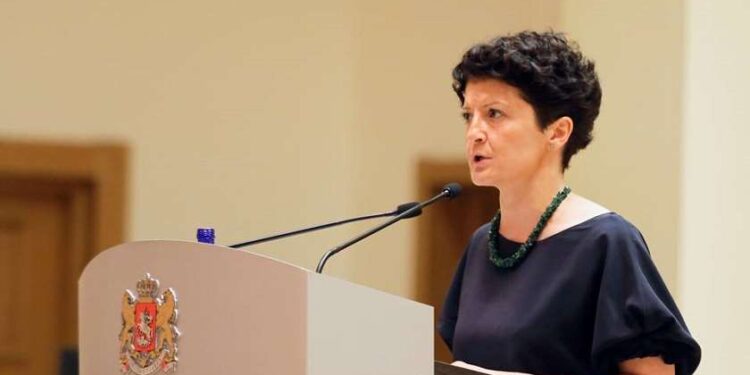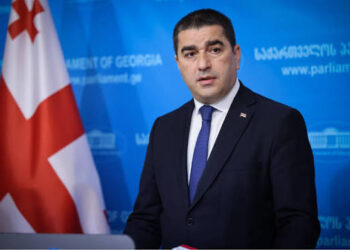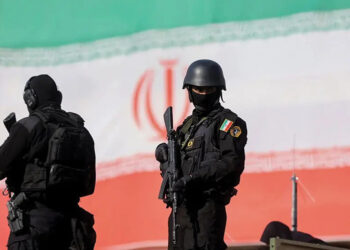Tea Tsulukiani, chair of the Temporary Investigation Commission examining the activities of Georgia’s ruling regime from 2003 to 2012, presented the commission’s findings at a plenary session in Parliament today. The report details widespread and systematic human rights violations under the United National Movement (UNM) government, particularly between 2004 and 2012.
Tsulukiani claimed that the commission meticulously examined all available evidence within its mandate. It concluded that the UNM’s so-called “zero tolerance” criminal policy led to systematic and systemic torture and inhumane treatment of detainees, prisoners, defendants, and convicts within Georgia’s Ministry of Internal Affairs and penitentiary system.
“These practices were not the actions of isolated individuals but part of an organized system of terror,” Tsulukiani said. “Political officials, including Mikheil Saakashvili, elevated these acts to the level of state policy. High-ranking officials at multiple levels were complicit in implementing this violent regime.”
The report highlights numerous forms of abuse, including:
-
Harsh living conditions and inadequate nutrition and medical care in prisons
-
Violations of personal and family life
-
Denial of legal defense and contact with the outside world
-
Suppression of information regarding violence
The commission also documented daily use of cruel methods of torture, often tied to achieving results in criminal cases, seizing property illegally, political retaliation, or personal revenge. Among specific examples:
-
Up to 2,000 new cases of tuberculosis recorded annually, with healthy and infected prisoners deliberately housed together to inflict harm
-
Deliberate obstruction of Hepatitis C treatment and testing, keeping its spread hidden from the public
The Prosecutor’s Office, instead of investigating these abuses, often failed to act or was complicit, while the judicial branch largely ignored the violations, contravening both Georgian law and international norms, including the European Convention on Human Rights. State-controlled media likewise refused to report on these abuses.
The commission’s findings also revealed a culture of impunity, noting that individuals involved in torture or overseeing violent systems were often rewarded with presidential orders. The report recommends that the current President review awards issued between 2004 and 2013 to identify cases involving crimes against humanity.
The investigation drew on multiple sources, including the speech of Pavle Kublashvili, then-Chair of the Legal Affairs Committee, in 2012, which confirms the persistence of the “zero tolerance” policy. Psychological evaluations of former prisoners conducted by the Levan Samkharauli National Forensics Bureau show that victims retained long-term moral and psychological damage.
Tsulukiani emphasized the role of the Public Defender’s Office, which remained the sole state institution addressing complaints and calling for action against torture during this period, particularly before it was weakened under Giorgi Tugushi’s tenure from 2010 to 2012.
The commission’s findings provide a detailed account of the human rights violations under UNM rule, establishing the systemic nature of abuse in Georgia’s law enforcement and prison systems during the 2004–2012 period.














